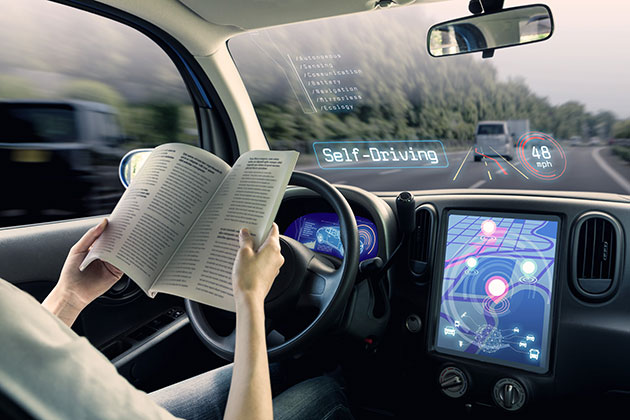The little white cars have turned Silicon Valley into their personal driving course for months, but a recent move by the California Department of Motor Vehicles (DMV) may put their progress off track.
The state agency recently issued a draft of potential regulations of self-driving cars, and the outcome doesn’t look good for those in favor of the technology.
A driver’s license-carrying human would still be required to sit behind the wheel should the regulations go into effect. That person would also ultimately be held responsible should any traffic violations or accidents occur.
The proposed regulations go on to say that manufacturers of self-driving cars would need to subject their vehicle to third-party safety testing and would not be permitted to sell the cars, but lease them only, through 3-year permits.
Manufacturers would also be held responsible for regularly reporting accidents, developing measures to prevent hackers from compromising the cars, and disclosing information to passengers about the data they would be collecting on them.
Noticeably absent from the list are any regulations regarding vehicles like the current Google prototype, which does not include pedals or a steering wheel. (Google has added those amenities for cars it tests on public roads.) Sufficient data on cars of this type are lacking, the DMV said, and it would not recommend making them available to the general public yet.
The rules were released by the DMV this Wednesday, after the agency missed several deadlines to come up with regulations and faced pressure to produce them from some of the major manufacturers of the vehicles.
Still, the document is just a draft, and will still be subject to interpretation at workshops held in Sacramento and Los Angeles over the next few weeks, where manufacturers, regulators and the general public can add their 2 cents at an open forum.
Unsurprisingly, the release was met with disappointment from driverless car manufacturers. In a statement released shortly after the DMV announcement, Google, one of the biggest investors in the driverless car movement, accused the state agency of “writing a ceiling on the potential for fully self-driving cars to help all of us who live here.”
But just because the brakes were applied in one state doesn’t mean the technology will sit idling.
Texas, the only other state to host self-driving car testing, has proposed no limits to the types of vehicles that can be used there, nor put any cap on the ongoing experiments. The open-handed approach has led some speculators to believe that Google will take its technology where it’s welcomed, and may soon expand its efforts in Texas and in other states.
